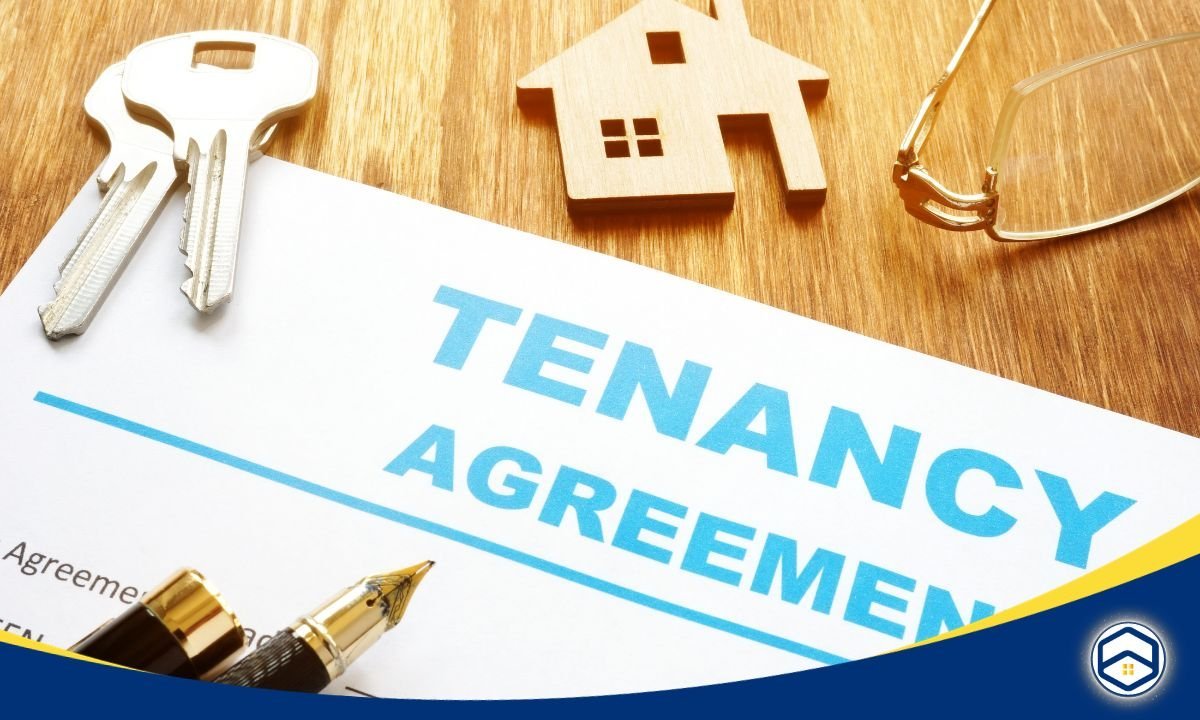Managing your own rental property can be a fulfilling endeavor, providing a consistent income stream and the potential for long-term financial growth. However, this undertaking is not without its challenges.
From securing reliable tenants to addressing maintenance issues, effective property management demands a thoughtful strategy. In this article, we will walk you through the essential steps to successfully manage your own rental property.
Understanding Local Regulations
Before immersing yourself in managing your rental property, grasp the specific landlord-tenant laws and regulations in your area. This knowledge is more than legal compliance; it’s a cornerstone for a positive landlord-tenant relationship.
Consider the case of Jane, a property owner in a thriving city. Unaware of recent changes in regulations regarding security deposits, Jane faced a tenant dispute. Her lack of knowledge led to legal complications and strained relations.
This case emphasizes the importance of local legal awareness. Lease agreements, security deposit handling, and eviction procedures are often subject to regional nuances. Compliance not only prevents legal issues but fosters trust with tenants.
In your property management journey, invest time in understanding the legal landscape. This knowledge not only protects your interests but ensures a smoother, more cooperative relationship with tenants. The success of your rental property venture hinges on navigating these legal intricacies with diligence and foresight.

Case Study: The Impact of Legal Ignorance
In Jane’s case, she had leased her property to a tenant without adjusting her practices in line with updated regulations. When the tenant raised concerns about the security deposit, Jane found herself navigating unfamiliar legal terrain. This lack of awareness not only resulted in legal entanglements but also strained the once-amicable relationship with her tenant.
Key Takeaways from the Case Study:
- Timely Adaptation: Regularly update your understanding of local regulations to ensure timely adjustments to your property management practices.
- Communication is Key: Had Jane communicated the changes in procedures transparently with her tenant, the dispute could have been avoided. Open communication is pivotal in navigating legal intricacies smoothly.
- Proactive Legal Compliance: Be proactive in legal compliance, not reactive. Understanding the legal landscape from the outset can prevent disputes and build a foundation of trust.
Thorough Tenant Screening
Background Checks: A comprehensive screening process involves thorough background checks. This includes examining an applicant’s rental history, employment background, and any previous issues with landlords. Identifying potential red flags early on is crucial for making informed decisions.
Credit History Evaluations: Assessing the credit history of prospective tenants provides insights into their financial responsibility. A stable credit history indicates a tenant’s ability to meet financial obligations, reducing the risk of late or missed payments.
Reference Checks: Contacting previous landlords and personal references offers valuable perspectives on an applicant’s reliability and behavior as a tenant. Insights gained from references contribute to a more comprehensive understanding of the prospective tenant.
Case Study: The Impact of Comprehensive Tenant Screening
Consider Sarah, a property owner who neglected to conduct thorough tenant screening. Eager to fill a vacancy quickly, she accepted the first applicant without a rigorous background check. Unfortunately, this tenant had a history of late payments and property damage, leading to a tumultuous tenancy.
Key Takeaways:
- Risk Mitigation: Thorough tenant screening mitigates the risk of selecting tenants with a history of payment issues or property damage, safeguarding the integrity of your investment.
- Informed Decision-Making: Background checks and credit evaluations empower landlords to make informed decisions based on a tenant’s financial stability and past rental behavior.
- Case-by-Case Consideration: The case study emphasizes the importance of tailoring your tenant screening process to each applicant, considering individual circumstances and histories.
Effective Property Marketing
Successfully attracting the right tenants begins with implementing robust marketing strategies. This involves a comprehensive approach that leverages online platforms, social media, and traditional channels to showcase your property. Let’s delve into the details of crafting an effective property marketing strategy, emphasizing the key elements that enhance visibility and appeal to potential tenants.
Utilizing Online Platforms:
In the digital age, online platforms play a pivotal role in property marketing. Utilize reputable real estate websites, such as HeXa PM, Zillow, or Apartments.com, to list your property. Ensure your listing is complete with high-quality photos capturing different angles of each room, along with a compelling property description highlighting its unique features.

Harnessing the Power of Social Media:
Social media is a dynamic tool for reaching a broad audience. Create visually appealing posts on platforms like Instagram and Facebook, showcasing your property’s aesthetics and features. Encourage engagement by including a call-to-action, inviting potential tenants to inquire or share the post with friends who might be interested.
Traditional Channels for Local Reach:
While online platforms are essential, don’t underestimate the effectiveness of traditional channels for local reach. Create eye-catching flyers or brochures to distribute in local community centers, bulletin boards, or even local businesses. This can capture the attention of individuals who prefer offline methods or are actively searching in the neighborhood.
Case Study: The Impact of Strategic Property Marketing
Meet Alex, a property owner who diligently employed a strategic marketing approach. By using professional photos, engaging social media posts, and competitive pricing, Alex managed to attract a pool of interested tenants within a short period. The property was swiftly leased, showcasing the effectiveness of a well-rounded marketing strategy.
Key Takeaways:
- Multi-Channel Approach: Utilize a combination of online platforms, social media, and traditional channels for a comprehensive marketing strategy.
- Visual Appeal: Invest in high-quality photos and visually appealing content to capture the attention of potential tenants.
- Competitive Positioning: Research local rental rates and strategically price your property to stand out in the market.
Engagement and Interaction: Encourage engagement on social media and other platforms to foster a sense of community and interest in your property.
Clear and Comprehensive Lease Agreements
Crafting a well-defined lease agreement is not just a formality; it’s a crucial step in establishing a transparent and harmonious relationship between landlords and tenants. A detailed lease minimizes misunderstandings and mitigates potential conflicts by clearly outlining all terms and conditions.

Key Elements to Include:
- Rent Payment Schedules: Specify the due dates, acceptable payment methods, and any penalties for late payments. This ensures both parties are on the same page regarding financial obligations.
- Maintenance Responsibilities: Outline which party is responsible for specific maintenance tasks. This could include regular upkeep, minor repairs, or addressing issues that arise during the tenancy. Clarity in responsibilities prevents disputes and ensures a well-maintained property.
- Property Rules: Communicate any rules or guidelines related to the property, such as noise restrictions, parking regulations, or restrictions on alterations. Clearly defining these rules sets expectations and contributes to a positive living environment.
Case Study: The Impact of a Comprehensive Lease Agreement
Consider Mark, a landlord who previously faced challenges due to a vague lease agreement. Disputes arose regarding maintenance responsibilities, leading to tension between Mark and his tenants.
Learning from this experience, Mark revised his lease agreement to include specific details about who was responsible for various maintenance tasks. This clarity significantly reduced conflicts and enhanced the overall tenant-landlord relationship.
Regular Property Inspections

Conducting regular property inspections is a proactive measure that pays dividends in maintaining the property’s value and ensuring tenant satisfaction. Scheduling inspections at least once or twice a year allows landlords to identify potential issues before they escalate, promoting a well-maintained living space.
- Benefits of Regular Property Inspections: Early Issue Identification: Inspections provide an opportunity to identify and address potential issues, such as leaks, appliance malfunctions, or structural concerns before they become major problems.
- Tenant Satisfaction: Proactive maintenance demonstrates a commitment to tenant well-being. Addressing concerns promptly enhances tenant satisfaction and contributes to long-term lease agreements.
- Property Value Preservation: Regular inspections contribute significantly to the preservation of the property’s value. By identifying and addressing issues early on, landlords can prevent minor problems from evolving into major, costly repairs. This not only saves money in the long run but also ensures that the property remains a sound and attractive investment.
Case Study: The Value of Proactive Property Inspections
Let’s consider the case of John, a diligent property owner who consistently conducted biannual property inspections. During one inspection, he noticed a small crack in the foundation that, if left unattended, could have led to more severe structural issues. Acting promptly, John addressed the problem, preventing potential long-term damage and preserving the value of his property. This not only safeguarded his investment but also strengthened his tenants’ confidence in his commitment to their well-being.
Key Takeaways:
- Cost Savings: Identifying and addressing issues early through regular inspections can save landlords significant costs in potential major repairs.
- Tenant Retention: Proactive maintenance, as demonstrated through regular inspections, contributes to tenant satisfaction. Satisfied tenants are more likely to renew their leases, ensuring a stable and consistent income for landlords.
- Property Longevity: By addressing issues promptly, landlords ensure the long-term durability and attractiveness of their property, maintaining or even increasing its market value over time.

In conclusion, successful rental property management is a multifaceted endeavor that requires continuous learning and adaptation. By staying informed, implementing best practices, and prioritizing tenant satisfaction, you position yourself for long-term financial growth and a positive landlord experience.
As you embark on or continue your journey in rental property management, remember that each step you take toward knowledge and strategic planning contributes to the success of your investment. With dedication and a commitment to excellence, you can navigate the complexities of property management and build a thriving and profitable rental portfolio.
At Hexa Property Management, we understand the intricate dance of challenges and opportunities that come with managing your properties. Our mission is to empower property owners like you to navigate this dynamic landscape effortlessly, ensuring not just a thriving real estate portfolio but also a stress-free and lucrative experience.

Comprehensive Solutions Tailored for You: Hexa Property Management isn’t just a service; it’s a comprehensive solution designed to meet the unique needs of each property owner. Whether you own a single-family home, a multi-unit complex, or a commercial space, our tailored approach ensures that your properties are not just managed but optimized for maximum returns.
Legal Expertise for Smooth Operations: Understanding the intricate web of landlord-tenant laws and regulations is crucial for a seamless property management experience. Hexa Property Management prides itself on staying abreast of local regulations, safeguarding your interests, and fostering positive landlord-tenant relationships. With our legal expertise, you can navigate the complexities of property management with confidence.
Transparent Lease Agreements: Crafting clear and comprehensive lease agreements is an art, and we at Hexa are masters of it. Our meticulous approach ensures that every term and condition, from rent payment schedules to maintenance responsibilities and property rules, is outlined with precision. This transparency not only prevents conflicts but establishes a foundation for positive and cooperative relationships.
Unlock the full potential of your properties with Hexa Property Management. Explore the Hexa Advantage and experience a new era of seamless, profitable property management. Connect with us today, and let’s embark on a journey to elevate your properties to new heights. Your success begins with Hexa.










